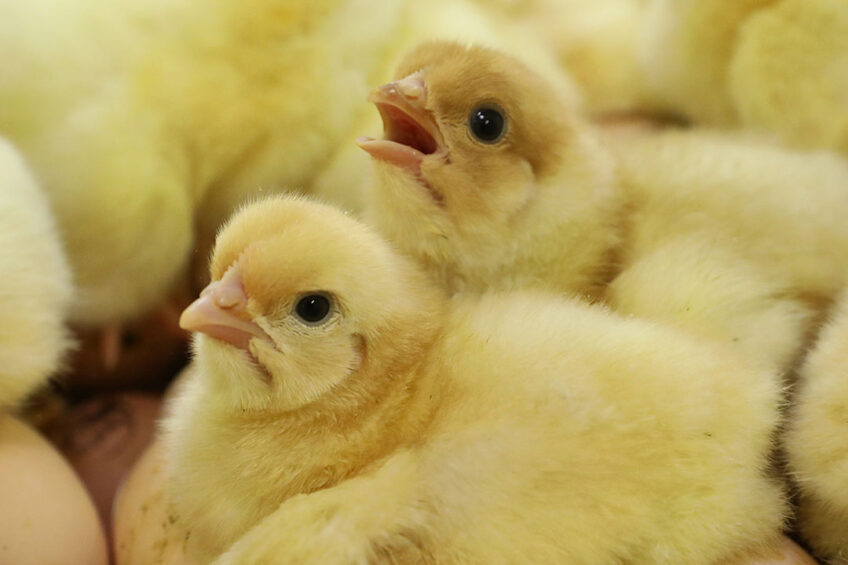British Poultry Council sets out the path to sustainability

The British Poultry Council, the umbrella organisation for the poultry industry in the UK, has set out the path forward to ensure the sustainability of the food system. In a report ‘2004 and Beyond’, the BPC charts the course towards developing a new and healthy context for British food production.
The ‘2024 and Beyond’ report proposes action towards solutions to the business-critical issues that have shaped this era of British food. In doing so, the report outlines a vision for British poultry meat and highlights the pivotal role that the British Poultry Council member businesses play in a sustainable, equitable and robust food system, underscored by the values that define the industry that is feeding the nation, according to the organisation. “The British poultry meat industry is integral to our national food security. We must continue to deliver for all people so we can all deliver for the planet.”
British Poultry Council chief executive Richard Griffiths: “Tackling the challenges that continue to shape poultry meat production must be with the view of setting out the UK’s vision for food, its place in society and ambitions for a food system rooted in agility, confidence, and foresight. We are confident this report can provide the foundations to inspire such change.”
Steps to safeguard availability, accessibility, and affordability of food
In 2021, the poultry sector contributed £6.8 billion to the UK’s GDP, directly employed some 33,900 people and delivered a £1.5 billion tax revenue to the exchequer. Poultry also is half the meat the country eats. Over the last 10 years, the sector realised a reduction of 98.7% in the use of critically important antibiotics.
In the report, the BPC outlines the steps that must be taken to safeguard the availability, accessibility, and affordability of food, prioritise the viability of poultry meat businesses and secure the robustness of the supply chains into the future.
A level playing field for UK-EU trade
Firstly, the British Poultry Council describes her ambitions as prioritising domestic production, confidence in the market place so that poultry producers can drive productivity to meet growing demand and fair and efficient supply chains including consistent and sufficient government support. The organisation also wants ‘to keep food moving’, by, among others, a level playing field for UK-EU trade including the introduction of UK-border controls on imports from the UK as well as a mutually beneficiary veterinary agreement on issues that recognise equivalence of standards. The British Poultry Council also asks that imported meat meets British welfare and production standards as well as for the opening of more markets with trading partners.
The reports states clearly that avian influenza must not compromise business continuity. That implies an exploration of the viability of vaccination in commercial poultry, promoting investment in robust biosecurity but also the bringing in line of compensation with that for 4-legged species.
The British Poultry Council furthers wants the insufficiency of resources at the Animal and Plant Health Agency to be addressed. To ensure that the sector itself meets the targets, more attention is needed to obtain and secure a properly skilled workforce since it is ‘the lynchpin for success in all facets of food production.’ Here, the organisation asks for access to loans, schemes and training programmes as well as for flexible routes to non UK-labour when necessary.
Poultry meat for the future at a glance
A 5-point plan charting the course towards developing a new and healthy context for UK food production has been released by the British Poultry Council. The poultry meat sector argues it has a key role to play given that poultry represents half the meat consumed in the UK.
Its key areas for development are:
1. Safe, affordable and nutritious food for all
- Prioritising domestic production
- Confidence in the marketplace
- Fair and efficient supply chain
In this area, the BPC wants to see 5 areas for action:
- The promotion of investment to drive economic security for productive businesses.
- Explicit UK self-sufficiency targets.
- Putting British food on the menu to deliver efficient and effective public services.
- Prioritising an environment that bolsters food production.
- A joint focus between the government and industry on embedding productivity into a sustainable food system.
2. Smooth and fair trading to keep food moving
The BPC has 3 ambitions:
- The creation of a level playing field for UK/EU trade – eliminating an imbalance in trade that is both a food safety and biosecurity risk and hinders fair competition. The BPC would like reciprocal border controls, saying they are key to a profitable and sustainable UK food system.
- Sufficient resources to support systems.
- Working together works – taking politics out of technical discussions with a constructive and risk-based approach with the EU Commission on technical barriers with a commercial impact.
And it is calling for 5 actions:
- The implementation of UK-EU border controls to level the playing field between importers and exporters.
- Prioritising a mutually beneficial veterinary agreement on SPS issues that recognises equivalence of standards.
- Addressing the ongoing issues of a shortage of official veterinarians in trade roles.
- Employing an electronic certification system for EU/UK trade to promote efficient processing of certification required for third countries.
- Building, maintaining and enhancing crucial global markets and trading relationships.
3. Managing avian influenza
Avian influenza is one of the biggest issues facing the sector but the BPC argues that it must not compromise business continuity. There should be effective collaboration, business support and a global dialogue. Among the actions are:
- Addressing the APHA resource insufficiency.
- Promoting investment in robust biosecurity through grants for improved poultry housing.
- Exploring the viability of vaccination in commercial poultry.
- Bringing compensation in line with four-legged species, levelling the playing field with the livestock sector.
- Opening dialogue with the global community to stop AI being used as a trade barrier.
4. A balance between welfare and the environment
Actions in this area include:
- Government and industry collaboration to drive science-based improvements.
- Implementation of border control to act on the imbalance in UK-EU trade and protect biosecurity.
- Ensure imported meat meets British welfare and production standards.
- Opening up of more markets with trading partners that value the UK’s production standards.
5. A secure and skilled workforce
The BPC wants to develop accessible pathways that support entry into the industry, arguing that a skilled workforce is the lynchpin for success in all facets of food production. Where access to non-UK labour is necessary routes must be flexible.
There should be support for investment in technology that will drive skills profiles, along with access to loans, schemes and training programmes that gives businesses tools to drive productivity, including fixing the Apprenticeship Levy.
It would also like to see the establishment of an agrifood skills taskforce to unite employers, associations and stakeholders, addressing shared challenges with timely and practical action.
Join 31,000+ subscribers
Subscribe to our newsletter to stay updated about all the need-to-know content in the poultry sector, three times a week. Beheer
Beheer











 WP Admin
WP Admin  Bewerk bericht
Bewerk bericht